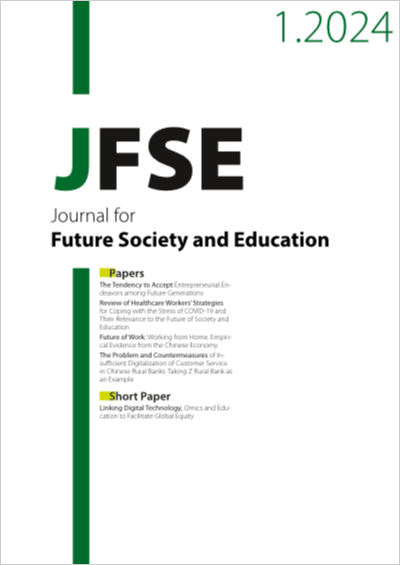Linking Digital Technology, Omics and Education to Facilitate Global Equity
DOI:
https://doi.org/10.3991/jfse.v1i1.49323Keywords:
Equity, equality, health, deep sea mining, sustainable development goals, United Nations, cancer, artificial intelligence, global governanceAbstract
There are many challenges, not least health inequities, global warming, and a rush for growth and economic development. Personalized, precision, and preventative medicine, bringing the latest omics techniques—genomics, transcriptomics, and metabolomics—for individuals allied to personalized prescription and care should help health equity. Digital technologies and artificial intelligence (AI) can help in an understanding of disease processes and in drug development. A holistic approach to the relationship between technology and the environment and clarity about both the positive benefits and negative harms resulting from using digital tools is necessary. We need to focus on the complete human-environmental interface and not just on climate change and carbon. It will be a measure of collaborative civilization if digital technology, omics techniques, and education can be used to promote global equity. Education linking diversities and performance throughout the world will be crucial.
Downloads
Published
How to Cite
Issue
Section
License
Copyright (c) 2024 M. James C. Crabbe, Gabriel Xiao-Guang Yue

This work is licensed under a Creative Commons Attribution 4.0 International License.


